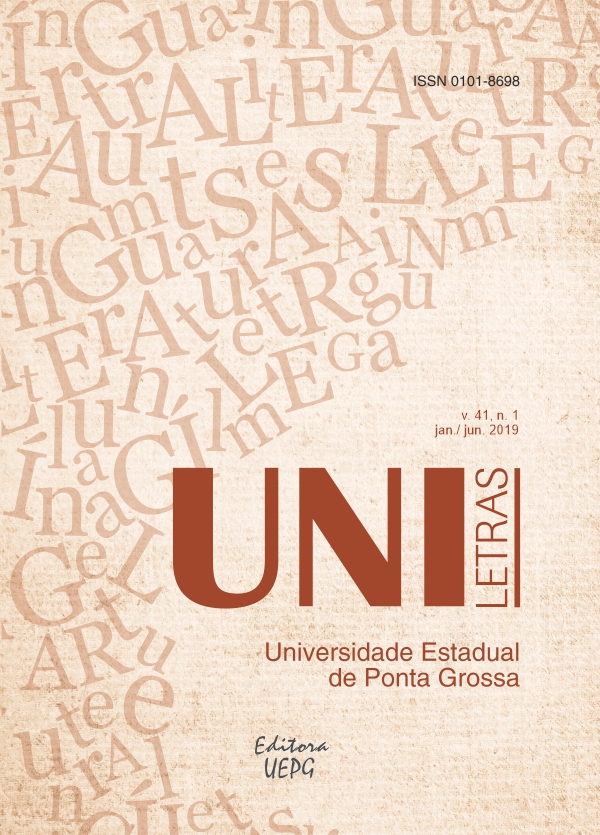UM ESTUDO INICIAL SOBRE A REPRESENTAÇÃO DA IDENTIDADE DE CLASSE NO LIVRO DIDÁTICO PORTUGUÊS: LINGUAGENS
Abstract
This study is a qualitative research in the Applied Linguistics area, which aimed to analyze a chapter of the textbook Portuguese: Languages by Cereja and Magalhães, regarding: social classes and how they are represented, and thereby, intersect this representation with the linguistic varieties. As a theoretical framework, we have: Street (2007) concerning to literacy practices; Dambrós (2016) and Baladeli (2014) with respect to social class identity; Faraco (2015) and Possenti (2000) regarding to the insertion of linguistic varieties in textbooks, among other. The results of this research demonstrate that the chapter brings some activities that fit the ideological filtering practices. However, the chapter works only with a poor / rich dichotomy, disregarding it as other social classes. Moreover, this opposition is made in a stereotypical manner. Therefore, it reaffirms the relevance of the works that aim to analyze textbooks, because a critical teaching is only possible from many reflections.
Downloads
Downloads
Published
Issue
Section
License
Authors that publish in the journal agree with the following terms:
a) The authors keep the copyright and grant to the journal the rights of the first publication, with the work simultaneously being licensed under the Creative Commons Attribution License that allows the sharing of the work with the recognition both of the authorship and the initial publication in this journal.
b) This journal provides immediate public access to all of its content, following the principle that making scientific knowledge freely available to the public provides greater worldwide democratization of knowledge. For more information about this approach, visit Public Knowledge Project, a Project that developed this system to improve the academic and public quality of research, distributing OJS as well as other softwares to support the publication system to public/open access to academic sources. Names and e-mail addresses in this website will be used exclusively for this journal purposes, not being available for other ends.

This work is licensed under a Creative Commons Attribution 4.0 International License.





